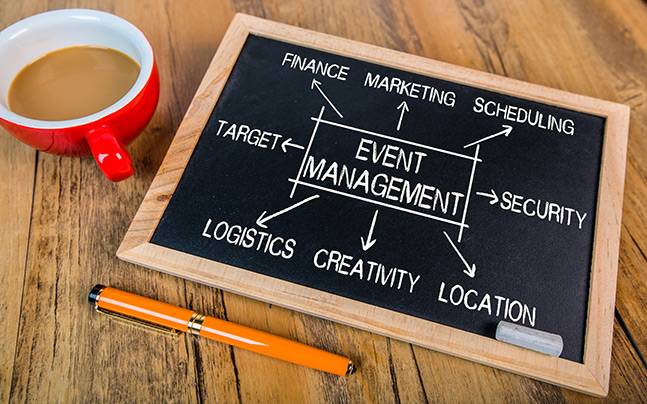10 Basic Principles For Successful Event Management
An event is an integral part of everyone’s life and all want to enjoy their event without any stress. But it is hard for anyone when you are managing the event as well.
There is no doubt, planning an event is a stressful process. But don’t worry at all, we are here for Event Management so that you can cheer without a headache. Also, we are sharing 10 basic principles for successful event management.
What is Event Management?
“Event management can be defined as an art of delivery any live experience it may be a wedding, festival, corporate event, private party, sporting event, birthday party, conference or meeting. An event manager should have creative and technical skills which are essential for the creation of the required environment.
According to the Wikipedia, event management is “the application of project management to the creation and development of large-scale events. It involves studying the brand, identifying the target audience, devising the event concept, planning the logistics, and coordinating the technical aspects before actually launching the event”…which is very accurate.
Here are 10 basic principles of event management.
1. Event Objectives –
What is the purpose of the event? What experience or feel do we want people to have? Planning an event is impossible without clear objectives. A clear understanding of objectives can be key of successful event management.
2. Budget Planning –
The second most principle of event management after deciding the objectives is budget planning. Effective budget management minimizes your risk. Delivering a great event is easy with unlimited funds, but great management is required to produce an event within a constrained budget.
3. Know Your Target Audience –
The event can be of any type, if you are doing a product launch event then you must identify the target audience of the product. It is vital to know so that you can build an event around them. Because it must be your event objective to aware the audience about a product.
4. Timelines –
Determining what has to happen and when. Any large event involves complex time management, scheduling, and coordination of other people’s activity – such as catering, digital and technological setup and venue preparation. Timeliness is another key factor of event management.
5. Venue Selection–
Venue selection may seem simple but the importance of finding the right venue should not be underestimated. This involves research, contract and cost negotiation and building working relationships.
6. Manage suppliers –
Suppliers management is an important part of event management. And every event involves a plenty of suppliers. From caterers to lighting, diverse suppliers need contacting, short-listing, negotiating costs with and finalizing contracts. From there, efficient management of all suppliers, ensuring they fulfill their roles on time and within budget, is essential to the success of the event.
7. Marketing and communication –
It’s never a case of if you build it they will come: delivering an audience requires marketing the promise of what the event will deliver! Today this involves various channels across direct mail, social media, and digital marketing.
8.Thinking Sustainably –
Making decisions in the event management process that consider the social and environmental impact.
9. Managing risk –
Events management is complex, as having many elements contributing to an event means multiple possible points of failure. Understanding what the risks are, the likelihood of each one arising, strategies to minimize risk and developing a robust contingency plan in the event of problems is a non-negotiable task in event management.
10. Backup Plan –
If you are planning any event you must have a backup plan for the contingency.





0 Comments